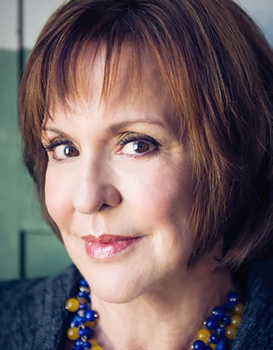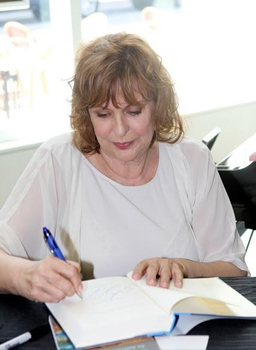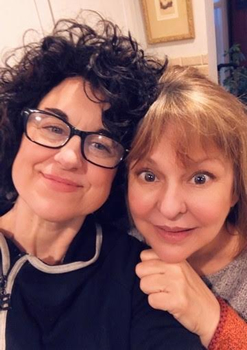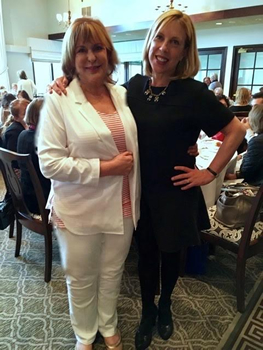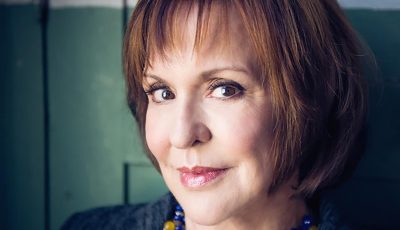

Between the Lines: Jacquelyn Mitchard
The Importance of Persistence, Resilience, and Writing Well
 By Dawn Ius
By Dawn Ius
Anyone who has tried to put pen to paper knows that publishing is an emotional roller coaster, not for the faint of heart. To survive—and perhaps thrive—one needs a thick skin. Persistence. Resilience.
While almost every writer’s journey is fraught with obstacles, perhaps no author has weathered the industry’s ups and downs with as much grace, persistence, and resilience as New York Times bestselling author Jacquelyn Mitchard.
Mitchard hit the literary scene hard when her hauntingly beautiful debut The Deep End of the Ocean became the first selection in Oprah’s Book Club. The novel went on to sell millions of copies and was made into a fantastic film starring Michelle Pfeiffer.
That was more than a decade ago—and a lot has happened since then. Some of it good—including the release of several more bestselling and award-winning novels. But not all of it. Not by a long shot.
In 2011, Mitchard and her husband lost millions of dollars and most of their possessions to a crooked investment advisor who was convicted of operating a Ponzi scheme. No question their family fell on hard times—but Mitchard truly embodies that resilience industry professionals go on about.
Mitchard kept writing, using her personal experiences to help enrich her stories, penning page-turning books known for their ability to get to the heart of the essential human condition. Mitchard is now the award-winning author of 22 novels for adults and teenagers, including this month’s highly anticipated release, THE GOOD SON.
Kicking off with a killer first paragraph, THE GOOD SON centers on Thea, a mother who faces the unimaginable: her son Stefan was convicted of killing his girlfriend in the midst of a drug-fueled episode he has no memory of. The story picks up four years later when Thea goes to get him from prison with the hope that he—their entire family, really—can start fresh.
Things haven’t been easy for Thea and her husband since the conviction—protestors linger outside their home, demanding justice for domestic violence offenders, the family of the murdered young girl lives just around the corner, and now that Thea’s regular visits to the prison have come to an end, she’s faced with conflicting emotions about her now-free son.
But of course, Stefan’s re-entry into society does not go smoothly, and now Thea must also find a way to help him navigate his way back into a community still reeling from the crime, while also trying to keep her family together and solve the mystery of what really happened that night.
THE GOOD SON is a gripping and emotionally charged novel that will leave you gasping for air, right up until the story’s final twist. Mitchard once again thrusts seemingly ordinary people into extraordinary circumstances and with a deft hand cranks up the pressure. Much like Mitchard, Thea isn’t going down without a fight.
In this interview with The Big Thrill, Mitchard shares her thoughts on persistence, resilience, and commitment—and how life’s ups and downs can provide some of the best source material for writers.
THE GOOD SON has one of the best first lines I’ve read in a novel—ever. How much do you rely on a first line to help set the tone for each book?
I take a first sentence ever so seriously; it’s really important to me, and not just as some kind of cheesy “grabber.” For me, it is the opening door, the writer asking readers to take her hand, to trust her, promising that this journey will be worth the considerable investment of emotion and time—not to mention money—that reading a novel comprises. If you betray that trust, if you don’t follow through on those promises, you lose that reader, and you deserve to. I can spend days, a month, casting and re-casting that first sentence, those first pages.
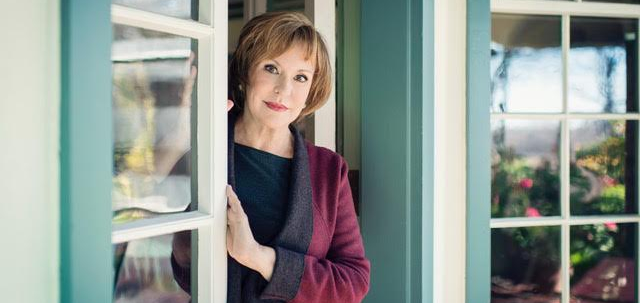
Jacquelyn Mitchard
In that first chapter, we’re introduced to Thea, who has arrived at the prison to pick up her son, Stefan, who has served time for a horrible crime—the murder of his girlfriend, Belinda. Please share a little about Belinda and the inspiration for her character, and for this story as a whole.
Since Belinda is never seen alive in the novel, it was important to me to create her through the observations of the people who loved her, but also very intriguing to me to be able to see her imagined in different ways by different people—by her mother, by the boy who loved her, by the girl who loved her. For all these people, Belinda was a touchstone, a repository of their own hopes and dreams that involved her. I imagined her as a girl just starting out, leaving behind a strict upbringing, trying to figure out who she would be. She was bold and bright and articulate. She was attractive. And she was just beginning to see the power that those attributes would confer upon her—when suddenly, it was all over.
There’s certainly an underlying mystery in this novel—and you do a masterful job of helping the reader navigate the twists and turns to a shocking end—but at the heart of this novel is Thea’s struggle in loving her son, despite what he has done and amid an unforgiving community rife with people who do not want Stefan (or his family) to move on from this tragedy. The emotional pull is palpable. How did your role as a mom (to five boys!) help you so deeply immerse yourself into Thea’s character?
Of course everything about my own experiences seeps into the stories I make up. It is only down to simple luck that I’ve never had a child in any kind of trouble with the law, beyond aggravated parking tickets, but I know people who have gone through this agony. I brought myself to tears thinking about how I would manage to go on if my best beloved were lost to me, or if my best beloved did the worst possible thing. Thea faces an impossible choice, and one thing I kept remembering was an encounter I had in the coffee line at a big hotel where I was speaking at a writer’s conference, years before I wrote this book. It was a conversation with a woman who came every weekend to visit her son in a nearby prison—a boy who had done exactly what Stefan was convicted of doing. She told me how she had once gone to the cemetery to put roses on the girl’s grave and the girl’s mother showed up. It was a terrifying moment for the mother of the son, but the two women ended up sobbing in each other’s arms. The girl’s mother said, “You are luckier, because at least you can touch him.” I had also watched a Ted Talk given by Sue Klebold, whose son, Dylan, was one of the Columbine school shooters, and I knew that there were people watching, thinking, how could she still love this monster? But I applauded her courage in telling her audience that, absolutely, she still loved Dylan, despite understanding that she would live all her life with the shame and grief over what he had done. It did not seem impossible to me at all that she would still love the son she had raised and hold herself accountable for his despair and his crime.
Stefan’s struggles as he tries to reenter society after leaving prison feel authentic. What kind of research was required for this novel? Was there anything surprising you learned along the way?
I talked with several people who’d been almost in Stefan’s exact circumstances—that is, they were not habitual criminals for whom a bid in prison was almost a foreordained part of adulthood, but young men or women who had been, if you will, tenderly raised, who fell hard off a pretty straight path, usually because of an involvement with dangerous and expensive drugs. Nothing about going to prison is anything but harrowing, for anyone, but it was probably even more shocking for a kid of Stefan’s background. The younger you are, the more vulnerable you are, and if your offense has been against a woman or a child, you are doubly targeted for the worst kinds of violence and humiliation. Learning to barter with what you have to offer—for Stefan, that was teaching people to read and pass their GEDs—is an essential part of survival, as is keeping to yourself, aligning with no one, challenging no one. Even visiting a prison to do an interview is, I would add, a deeply unsettling experience. Hearing those big doors close behind you, seeing those eyes, some crazy, some just pathologically bored, there’s nothing like it. As far as coming out of prison, that’s the time when a person is really the most at risk to reoffend or even commit suicide because there is at first some hope of starting again, of reuniting with the life you had before if that life had anything good about it. The truth that quickly dawns is that life is closed to you, it’s over, there is no return to the past. The realization can crush a person.
THE GOOD SON embodies the hallmarks of your work, which began with your startling and bestselling debut, The Deep End of the Ocean—you delve deep into human relationships. What draws you to these themes?

Mitchard speaks at the Des Moines Public Library’s annual Authors Visiting in Des Moines (AViD) event.
Well, in the final reckoning, those relationships are the only thing that we’re here for—whether they anguish us or vex us or delight or sustain us. If you’re a soldier at war or a single parent raising a toddler or a senior startled by widowhood, the measure of your life is your bonds with other people. That’s why on your tombstone, it doesn’t say, “Made a Bunch of Money” or even “Inventor” or “Poet.” The first thing it says is “Beloved Father,” or whatever role in life linked you to other people, to the people who mourn you. Now I will say this, and it’s something that I get kind of crabby about every chance I get: If a woman writes about human relationships, it’s oh-ho-hum…but if a male author, a Tom Perrotta or a Jonathan Franzen, writes about marriage and the tangled web of family life, it’s oh-wow, that guy is a visionary, just ever so sensitive and observant…hmmm.
You paint such a vivid picture of what life was like for Thea and her family before this tragedy flipped their lives upside down. I know you understand about how something can absolutely change your life, both for the better and for the worse. Your career has been both blessed and cursed over the years—but you are resilient, professional, and so very talented. What advice about resilience would you give to writers who are trying to carve out a place in this volatile industry at perhaps one of the most uncertain times in society?
Sometimes I hate it when people say, oh, you’re so strong, because there have been times when I just wanted to lie on a clean bed and have someone bring me vegetable broth. But I would tell any writer, treasure your strength and preserve it, because you are going to need it. You’ll need it to write at all in the face of discouraging odds. But someone has to be published, why not you? You’ll need it in the face of critics who point out every terrible sentence you stumbled over, every reviewer whose shoes hurt that day. And you need brute courage in life as well. You really have no other choice but to persevere. I mean, what do you do? When things knock you down, you can hide in the closet and chew on your raincoat, or you can pick yourself up and go on. One of these is by far a better look. It’s not courage, it’s necessity.
Courage, as my great friend Lorrie Moore once wrote, requires options. When I was widowed young, with three little kids, with no life insurance, when the roof literally fell in, I wrote my first novel in a sense to prove that there was going to be a second act for us. I was a newspaper reporter who hadn’t done any creative writing since the freshman elective at the University of Illinois, and while I knew the story was good, I had no idea of the enormous and unexpected success that book would achieve. And then, I fell in love again and married a great fellow who then invested all the money we had with a criminal, and it was back from riches to rags again. But what else can you model as a human being except not to live a timid life? It isn’t a choice to cause others to admire you but to be able to put up with yourself.
While I can’t relate to Thea’s experience completely, THE GOOD SON gave me much to think about—it’s not only a riveting page-turner and literary masterpiece (truly, your writing is staggering), it’s the kind of book that lingers long after you hit the end. What do you hope readers take away from this story?
I’m glad I paid you so well to do this interview. You’re really coming through for me! Kidding, of course, but that is really a kind thing to say, and I hope it’s in some way merited. The thing that most stays with me about this story is one of the themes, if you will, of this interview. You have an obligation in life to be brave, to try to go bravely where circumstances take you and to believe truly in the things your gut tells you to believe in. Try to resist the forces that would tell you to retreat and retrench on your principles and ignore your hunches. Thea went way down what they call these days the rabbit hole; she was relentless and drove herself and everyone else nuts.
I think of a much different person, a writer called Michelle McNamara who came from the west side of Chicago, as I did, but became determined to catch and stop the criminal later known as The Golden State Killer, Joseph James DeAngelo, who, without her book, I’ll Be Gone in the Dark, would probably still be out there. The search can cost you your health, as it did Michelle, who ultimately died of an accidental overdose of painkillers. And you can do all that and still not come up with a satisfying answer to all your labors. But at least, you will most often know the truth, and the truth, no matter how devastating, is always better than a falsehood, no matter how comforting. The truth gives you a place to stand. As Thea’s husband Jep says, calling it the first law of Thea-dynamics, give her a lever and a place to stand and she can move the world.
THE GOOD SON feels darker than your previous novels (though you do infuse some great spots of humor). How much of that is planned (I know you’re a plotter) and how much is organic to the story as it unfolds?
It’s a good deal darker, by design. I wanted to dig deep down at the tangled underground roots of human behavior. It is no accident that as a professor of literature, Thea writes about obsessed women—Anna Karenina, Tess of the D’Urbervilles, Catherine Earnshaw. Late in the novel, Thea says, “a force for good, dialed up many notches, can do harm. Jill’s obsessive love for Belinda was the perfect twin to my love for Stefan. Stefan’s love for Belinda … Emily’s love for Belinda … they made up a hall of mirrors, each reflecting back the love that pushed them to obsession. But if those obsessions led to terrible acts of wrongdoing, the love itself was never wrong.”
I’m thrilled to see such positive response for THE GOOD SON. But I was also really surprised to see how many readers read this because they remember how powerful a read The Deep End of the Ocean was. They’re not wrong—and that’s some impressive fan staying power. What does that readership loyalty mean to you?
It touches my heart, more than I can express. It just humbles me to know people have my back, still, after these many years, readers who want to know what kind of mayhem I’ll come up with next. And The Deep End of the Ocean, which surely has its flaws—in part because it was written before I really knew how to write a novel—is definitely the little book that could. Despite those flaws, millions of people related to that story—and to its haunted protagonist, Beth Cappadora—because I think the one thing that is authentic about that book is the authority of grief. As for readers, you know, if I had a dollar for every time I’ve heard a writer say, well, I’m really doing this for myself…I would be able to buy lobster for everyone in my neighborhood. The truth is that none of us is doing this for ourselves; it might start out that way, but every writer longs to share that music with someone who will really hear it and want to dance to it. Emily Dickinson was a recluse, and I am sort of a recluse too. She didn’t travel far from her father’s house. But she wrote, This is my letter to the world, that never wrote to me.
What can you share about what you’re working on next?
I’ve just begun a story about a gifted young underwater photographer who realizes that she has no idea what’s happening on dry land, most especially in her own family. In a sense, it’s about the destructive power of true love. She comes home after nearly a year to visit her widowed father and catch up with her brother and her lifelong best friend, only to find out something that she could never have guessed was possible, never in a million years. And of course, that’s just the beginning. It’s called (well, at least for right now) Saltwater, because that’s the stuff of our tears and blood and the sea all around us.
- On the Cover: Alisa Lynn Valdés - March 31, 2023
- On the Cover: Melissa Cassera - March 31, 2023
- Behind the Scenes: From Book to Netflix - March 31, 2023

